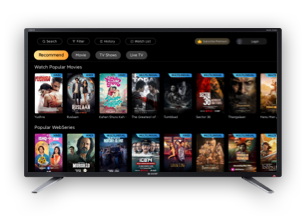Nicolas Winding Refn
Writer, director, and producer Nicolas Winding Refn was born in Copenhagen, Denmark, in 1970, to Anders Refn, a film director and editor, and Vibeke Winding (née Tuxen), a cinematographer. Just before he turned 11, in 1981, he moved to New York with his parents, where he lived out his teen years. New York quickly became his city and soon began to shape Nicolas' future.
At seventeen, Nicolas moved back to his native Copenhagen to complete his high-school Education. After graduation, he swiftly flew back to New York, where he attended the American Academy of Dramatic Arts. However, this education was cut short when Nicolas threw a desk at a classroom wall and was expelled from the Academy. Consequently, he applied to the Danish Film School and was readily accepted. This education too was to be short-lived, though, as one month prior to the start of the semester, Nicolas dropped out.
A short film Nicolas had written, directed, and starred in was aired on an obscure cable TV channel and lead to the offer of a life-time. Nicolas was spotted and offered 3.2 million kroners to turn the short into a feature. At only twenty-four, Nicolas had written and directed the extremely violent and uncompromising Pusher (1996), which became a cult phenomenon and won Nicolas instant international critical acclaim. The success of his debut spurred him to push the boundaries of his creative filmmaking further, which resulted in the close-to-the-edge and intricately gritty Bleeder (1999). Highly stylized and focused on introverted reactions to outward situations, this film was a marking point for the shaping of Nicolas's future career. The movie was selected for the 1999 Venice International Film Festival as well as winning the prestigious FIPRESCI Prize in Sarajevo.
Nicolas's fourth feature, the much-anticipated Fear X (2003) was also his first foray into English-language movies. Starring the award-winning actor John Turturro, "Fear X" made its world premiere at the Sundance Film festival. However, Fear X divided critics and it flopped, which made Nicolas Winding Refn broke and in debt.
Having to provide for his family and paying his debt, he returned to Denmark to revisit "Pusher." Refn was reluctant to revisit his past success but decided that he could both make commercially viable and artistically pleasing films. In just two years he managed to write, direct and produce the two sequels. Pusher II (2004) and Pusher III (2005) sealed the box and success of the internationally renowned "Pusher" trilogy. In 2005, the Toronto Film Festival held a "Pusher" retrospective showing all three features cementing its worldwide phenomenon.
In 2006 Nicolas embarked on a second English-language (and first digital) feature called Valhalla Rising (2009), which was inspired by a story his mother read to him at the age of five about a father and son who embark on a trip to the moon. Not recalling the ending of this story has been a long time fascination of Nicolas's with the unknown. During the pre-production on "Valhalla Rising," his long time collaborator and friend, Rupert Preston, urged him into accepting an offer to write and direct Bronson (2008), an ultra-violent, surreal, and escapist film following the real-life landmarks and self-entrapment of Charles Bronson, Britain's most notorious criminal. Before its cinematic release, "Bronson" was making waves inside and outside the film industry. The 2009 Sundance Film Festival selected the blistering film for its World Cinema Dramatic Competition and it soon became the talk of the festival. With such a prestigious premiere, "Bronson" went on to be selected for other major international film festivals and reap strong box-office rewards. But, even with such a buzz surrounding the film, no one could predict how the British press would bite at "Bronson's" bit. The content was close to the knuckle, the subject matter controversial, but Nicolas's take on this was even more inspired leading him to be labeled by the British media as the next great European auteur.
With such critical acclaim, Nicolas's reputation as a producer, writer and director was solidly reaffirmed. Nicolas and his wife Liv Corfixen were the subjects of an acclaimed documentary, Gambler (2006), which premiered at the Rotterdam International Film Festival in 2005. In addition, Nicolas already received two lifetime-achievement awards (one from the Taipei International Film festival in 2006 and the second from the Valencia International Film Festival in 2007), and it was the winner of the Emerging Master Award from the Philadelphia International Film Festival 2005.



